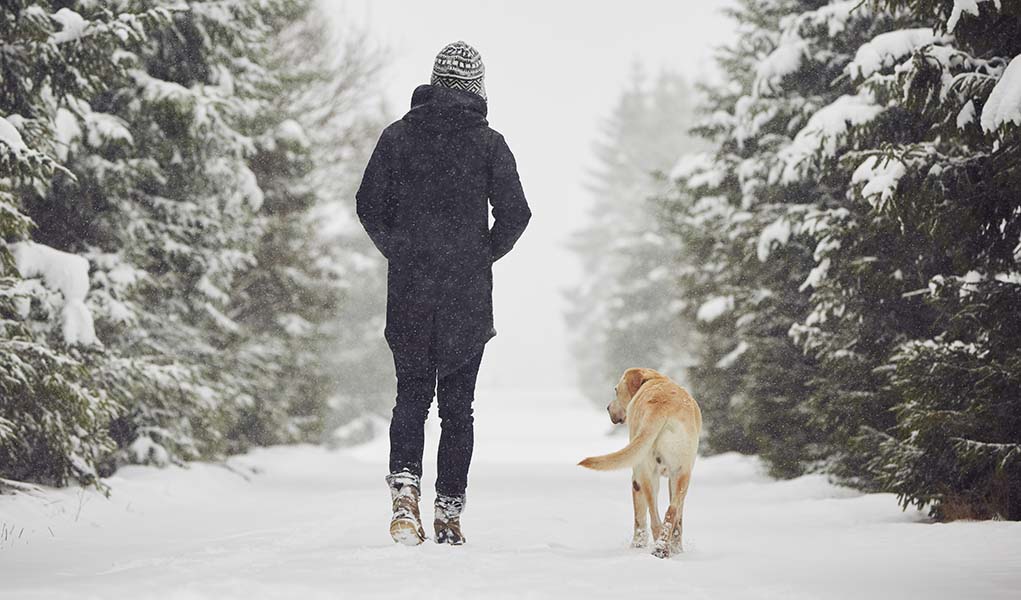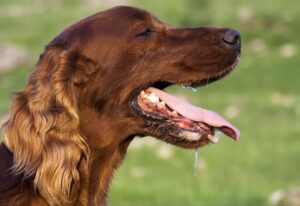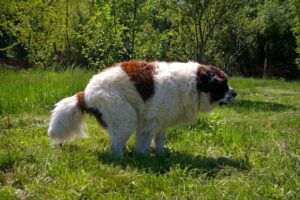When it comes to winter, the freezing temperatures usually indicate a heightened sense of discomfort. We all must burrow under layers of clothing and blankets to stay warm, weep at the sight of the heating bill, scrape ice off our cars, keep our pipes from freezing, and clearing off snow from driveways. Winter is definitely not our friend.
And it’s not our dog’s friend either. All dog owners know that wintertime is a balance between giving our dogs a chance to roam and exercise outside, while also maintaining their warmth. Most of the dog owners who live in a snowy area are well versed in the dos and don’ts of dogs and wintertime. But if you’re new to a climate with snow, or you’ve just adopted a dog and live in a snowy area, or if you just are curious about additional precautions you can take while walking your dog in the snow, then here are some VetStreet tips below:
Tips to Follow
Buy Your Dog a Winter Jacket
Pet accessories aren’t designed to just be a fashionable statement, some of them do serve a functional purpose, like a dog winter jacket or coat. Dogs with short hair, or really small dogs, are the ones who are particularly prone to being uncomfortable in freezing temperatures and definitely need an extra boost conserving their body heat. Of course, this doesn’t mean that a large hairy dog, like a St. Bernard can’t rock a winter coat. It’s a great idea for all dogs. When you got to pick out a coat for your dog, be sure to get one that is waterproof and covers the chest and abdomen. Brighter colors work better for visibility, especially if your dog has lighter fur – that way if they’re off-leash at any point, you can spot them.
Paws Need Protection with Dog Winter Boots
While dogs’ paws are quite tough and can withstand some pretty tough terrains, prolonged exposure to snowy or icy surfaces will become uncomfortable. One way to protect their paws is to apply a wax or gel to help protect their skin, however, you need to remember to wash it off when you’re done outside. Other pet owners prefer to put their dogs in winter booties as they’re designed to keep your dog’s paws dry and weather-resistant. If your dog resists wearing booties, you can put them on, then try distracting them by giving them a treat – or just go straight outside.
Choose the Right Leash for Winter Walks
If your dog is the type who ends up walking you, be sure to get yourself a leash that will allow you to maintain more control over unpredictable winter surfaces. A harness both takes the strain off the dog’s neck while allowing you to direct the path much easier. Don’t use retractable leashes since they make it more difficult to control the slack. If you’re prone to walking over really precarious areas, get a jogger’s leash since it fits around your waist and will keep your dog tied to you should you slip and lose your grip.
Do a Post-Walk Check
If you let your dog go completely barefoot outside after a walk, be sure to rinse off any salt or antifreeze as soon as you get home. It is also a good idea to wipe down their belly as well since it can also come in contact with de-icing products. These compounds are not only irritating to their paws, but they are also toxic if ingested. If you’re walking outside, be sure to steer them clear of any chemical puddles they might encounter outside.
Watch for Signs Your Dog is Uncomfortable
Dogs tend to shake, turn towards home, or leave their paws raised when the cold is getting to be too much for them. There are certain breeds who are a little more tolerant of the cold than others, but you should always be cautious, especially when temperatures go below 30°F. There is a chart for information on weather conditions and the potential risk to animals. If you observe any of these signs in your dog, then it’s always a good idea to end the walk and get them home immediately to warm up.











